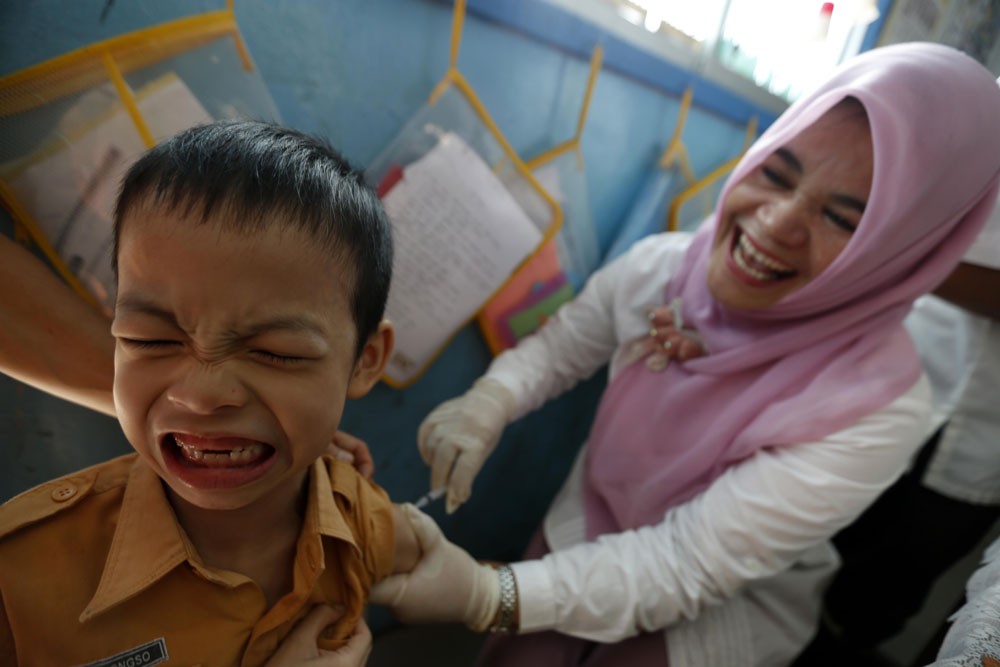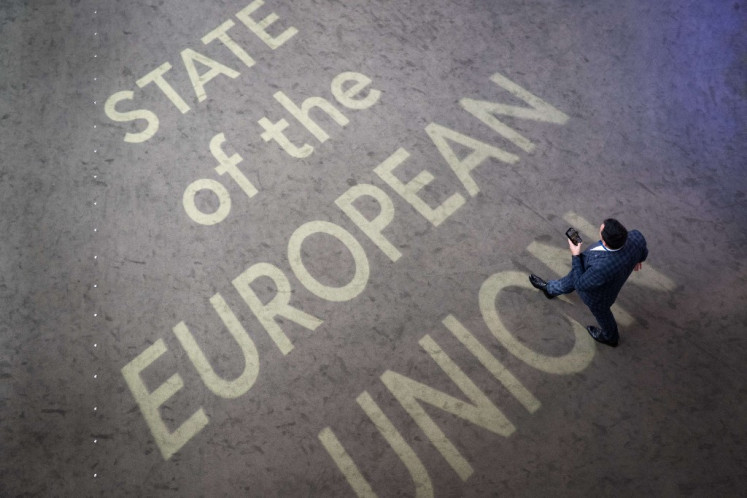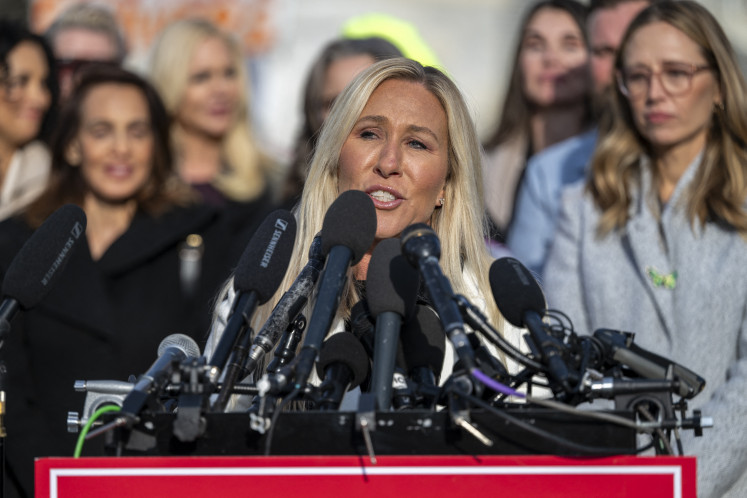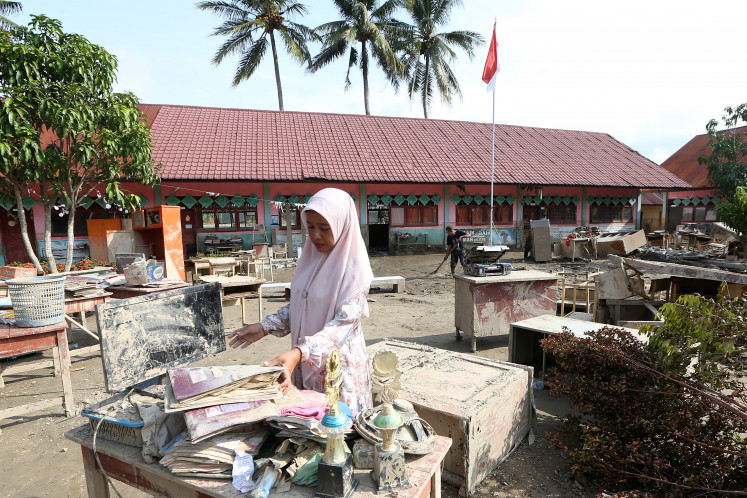Popular Reads
Top Results
Can't find what you're looking for?
View all search resultsPopular Reads
Top Results
Can't find what you're looking for?
View all search resultsWhat now? Seeking vaccines in light of the 2016 scandal and religious opposition
The worldwide resurgence of the antivaccination movement and misinformation regarding vaccines are to blame.
Change text size
Gift Premium Articles
to Anyone
T
hey are the holy grail of modern health care but still face resistance all over the world: vaccines. Vaccines provide active acquired immunity for a particular disease. According to the World Health Organization (WHO), vaccines have prevented 2-3 million deaths annually and if global vaccination improves, they could save an additional 1.5 million lives.
However, in 2019, the WHO and UNICEF said in their annual report that there was a "dangerous stagnation of global vaccination rates, due to conflict, inequality and complacency.” The worldwide resurgence of the antivaccination, "ant-vax”, movement and misinformation regarding vaccines are to blame.
Indonesia also has its share of the “anti-vax”. As the country with the largest Muslim population, the reasons against vaccines are primarily religious and political. Moreover, some still doubt the safety and efficacy of immunization as a result of both the vaccine scandal of 2016 and a lack of education.
It is crucial to revamp our population’s understanding of the importance of immunization. The responsible agencies and government should also do their best to guarantee that vaccines are accessible and reliable.
In 2016, Indonesia was shaken by a medical scandal that seemed to be ripped off from a horror story: fake vaccines. Instead of receiving boosters for severe illnesses, including polio and hepatitis, young children were injected with saline solution and other concoctions of unspecified intravenous liquids contained in reused vaccine bottles. No doubt this situation caused widespread condemnation in Indonesia as it involved jeopardizing the health of little children. However, it also tainted vaccination’s image as the safest and most effective preventative measure against infectious diseases.
I met with Farouk, a police officer who handled the examination and exposed the syndicate that distributed these fake vaccines. He explained that the vaccine scandal remained an open case as some of the medical personnel involved were yet to be charged and prosecuted. Despite this, Farouk said the police treated this medical scandal with dire seriousness as they made 23 arrests and confiscated vaccines from over 37 hospitals and clinics across nine cities. He also wanted to remind parents who continue to be concerned that the government has been adamant and persistent in re-inoculating the millions of children affected under their program.
Besides the police, I also interviewed two representatives from the Drug and Food Monitoring Agency (BPOM), the government agency that oversees vaccine distribution and production in Indonesia, Pak Oki and Ibu Sofi. They revealed that BPOM works closely with the Health Ministry in its efforts to ensure that the five mandatory vaccinations cover children all over Indonesia. A part of their efforts also includes increasing immunization coverage for the other 16 recommended diseases. They also gave an assurance that rigorous procedures are in place to verify the safety and quality of vaccines distributed throughout national supply chain channels like batch testing, post-market monitoring and procurement measures.
With the BPOM officials we further discussed possible mechanisms to prevent the sale and use of fake vaccines including better procedures to ensure security for medical product shipments, random validation checks on hospital vaccines, a sticker system to trace vaccine production and use, as well as community information sessions on vaccination and healthcare access.
Although the government has implemented various efforts to reassure the population that vaccines are safe and very much necessary, religious groups have pushed against immunization as well. In August 2018, the Indonesian Ulema Council (MUI) issued a fatwa that the measles-rubella (MR) vaccine was permitted for Muslims, despite containing pig-derived gelatin, which is used as the vaccines’ stabilizing agent. However, some parties, including the MUI branch of Riau Islands province, took it as a sign to stop using the MR vaccine altogether until there was a halal alternative.
Such opposition toward vaccination has caused a significant decline rate of MR vaccination across Indonesia. Compounded by the geographical isolation and lower socioeconomic factors among many Indonesian communities, outbreaks of common and treatable communicable diseases remain common. Awareness of herd immunity is still low, so that many still think that there is no urgency to have vaccination unless there is an outbreak.
The concern over non-halal components in the vaccine has most negatively affected the ultra-conservative province of Aceh, where the MR coverage in 2018 stood at a mere 7 percent. Papua is also facing opposition to the MR vaccinations, with roughly 40 percent of parents refusing to allow their children to get vaccinated.
The WHO identifies antivaccination as one of the top 10 global health threats. By becoming more aware of the importance of immunization and its strength as a preventative measure, as well as its potential to eradicate diseases for our future generations, we join others in protecting ourselves, our family and our community. As we enter into the next decade, we must face new urgent health challenges – let us make sure vaccine hesitancy is not one of these.
***
Kaitlyn Gosakti is currently a senior at the Jakarta Intercultural School. She is the founder of Kampoeng Sehat, an organization that focuses on bettering health care for less fortunate Jakarta residents.










